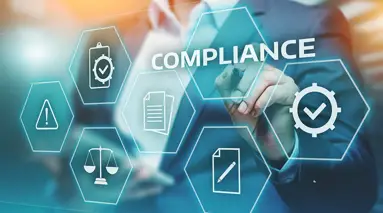Recruitment Compliance: All You Need to Know in 2023
40% of the workforce may leave their current jobs within a year, and by 2030, over 85 million jobs could remain unfilled due to a lack of skilled workers. Additionally, 54% of job seekers might abandon applications if they perceive non-compliance in the recruitment process.
In this blog, Aniday will dive into the world of recruitment compliance, exploring what it means for recruiters, why it's important in 2023, key compliance laws and best practices, and how to protect candidate data.

What Does This Mean for Recruiters?
Recruiting top talent is increasingly challenging, and new compliance laws bring financial and branding risks for non-compliant businesses. In this discussion, we explore 2023 recruitment compliance, helping your business attract top talent while avoiding compliance and discrimination issues.
Recruitment Compliance: What Is It?
Recruitment compliance means following legal and ethical hiring standards, preventing discrimination based on various factors. In the U.S, The Equal Employment Opportunity Commission (EEOC) and the Office of Federal Contract Compliance Programs (OFCCP) oversee compliance.
In Europe, organizations must comply with the European Union's labor laws. As a recruiter, adhering to these guidelines is crucial for hiring the best candidates while avoiding legal and reputational risks.
Why Recruitment Compliance Is Important in 2023?

Recruitment compliance is vital in 2023, ensuring equal job opportunities for all while safeguarding businesses from legal repercussions. Its significance in 2023 is driven by:
1. Legal and Regulatory Requirements
Recruitment laws and regulations are ever-changing, making compliance necessary to avoid legal consequences, fines, and penalties.
2. Preventing Discrimination
Recruitment compliance prevents discrimination based on factors like race, gender, age, and religion, promoting diversity and inclusivity.
3. Protecting Data Privacy
It safeguards the privacy of applicants' personal and sensitive information collected during the hiring process.
4. Building a Positive Reputation
Compliance enhances an organization's reputation, attracting top talent and improving retention rates.
5. Ensuring the Best-Qualified Candidates Are Hired
It ensures organizations select the most qualified candidates, fostering a skilled and productive workforce.
Key Recruitment Compliance Laws and Best Practices
Recruitment regulations differ based on the specific country and state:
1. United States
In the United States, several laws and regulations are critical for recruitment compliance, including:
-
Title VII of the Civil Rights Act: prohibits discrimination based on race, color, religion, sex, and national origin.
-
Americans with Disabilities Act (ADA): Requires reasonable accommodations for candidates with disabilities.
-
Age Discrimination in Employment Act (ADEA): Guards against age-based discrimination.
-
Fair Credit Reporting Act (FCRA): Governs background checks..
Best practices include creating clear job descriptions, using diverse sourcing methods, maintaining detailed records, and training recruiters on compliance.
2. Europe and the United Kingdom
In Europe, GDPR is a cornerstone of data protection, impacting recruitment processes. Recruiters must obtain candidate consent for data processing, provide transparency, and promptly respond to data requests. In the United Kingdom, similar regulations apply, along with the Equality Act 2010, which prohibits discrimination.
How to Stay Compliant While Recruiting

Staying compliant during the recruitment process involves several key areas:
1. Compliant Job Description
-
Use clear, accurate, and inclusive language in job descriptions.
-
Highlight essential qualifications and responsibilities.
-
Avoid gender-specific terms.
2. Compliant Interview Process
-
Use standardized questions for structured interviews with all applicants.
-
Train interviewers to avoid biased or discriminatory questions.
-
Document interview results, emphasizing qualifications and skills.
3. Compliant Job Offers, Contracts, and Communication
-
Ensure that job offers and contracts are consistent and comply with all legal requirements.
-
Communicate offer details, compensation, and benefits transparently.
-
Provide equal opportunity for negotiation.
Recruiting Compliance Challenges
Recruiting compliance can be a complex endeavor due to various challenges:
-
Evolving Regulations: Laws change frequently, making it challenging to stay up to date with compliance requirements.
-
Geographic Variances: Different locations have varying compliance rules, complicating consistency for multinational organizations.
-
Data Privacy: Protecting candidate data, as per GDPR or CCPA, presents a significant challenge.
-
Bias and Discrimination: Eliminating biases and ensuring fair evaluations during the hiring process is an ongoing struggle.
-
Equal Opportunity: Balancing diversity and fairness requires careful planning.
-
Record-Keeping: Maintaining meticulous records for audits and legal purposes can be time-consuming.
-
Third-Party Compliance: Ensuring compliance with third-party recruiting agencies can be complex.
-
Training and Awareness: Ensuring personnel are well-versed in compliance measures is crucial.
-
Technology Integration: Technology may introduce new compliance challenges.
-
Reputational Risk: Compliance violations can damage an organization's reputation, deterring top talent.
Maintaining Recruiting Compliance: Best Practices
To maintain recruiting compliance effectively, follow these key steps:
-
Stay Informed: Keep up with changing laws and industry best practices.
-
Craft Clear Job Descriptions: Ensure unbiased language and accurate representation of job requirements.
-
Standardize Interviews: Use structured interviews with standardized questions to avoid bias.
-
Background Checks: Follow legal guidelines, inform candidates, and allow dispute resolution.
-
Data Privacy: Protect candidate data, complying with GDPR and CCPA when applicable.
-
Employee Training: Train personnel on compliance and update their knowledge regularly.
-
Monitor and Audit: Periodically review processes and conduct compliance audits.
-
Maintain Transparency: Keep candidates informed throughout the hiring process.
-
Seek Legal Guidance: Consult legal counsel when uncertain about compliance issues.
-
Document Everything: Keep thorough records of the recruitment process.
-
Consistency: Ensure consistent compliance practices across all locations.
-
Reputation Management: A positive reputation attracts top talent; compliance plays a crucial role.
-
Review Third-Party Relationships: Ensure third-party recruitment agencies also comply with regulations.
How to Protect Candidate Data
Data privacy is a critical aspect of recruitment compliance. Protecting candidate data requires several measures:
1. Secure Data Storage
Store candidate data securely using password-protected databases and encrypted files. Limit access to authorized personnel.
2. Use Secure Communication Channels
Communicate with job applicants and third-party service providers through secure channels like encrypted emails and messaging systems.
3. Comply with CCPA and GDPR
Ensure compliance with the California Consumer Privacy Act (CCPA) and the General Data Protection Regulation (GDPR) if processing personal data in the US or EU. Obtain explicit consent from applicants, provide data access, and meet other legal requirements.
4. Conduct Background Checks Legally
Conduct background checks in accordance with applicable laws and regulations, such as the FCRA in the U.S.. Notify applicants of background checks and allow them to dispute inaccuracies.
5. Train Employees
Train your staff on data protection policies and procedures, emphasizing the importance of safeguarding candidate data throughout the recruitment process.
6. Monitor Data Breaches
Keep an eye out for data breaches and have procedures in place to address them promptly. This involves promptly informing job applicants and relevant authorities of any breaches.
7. Integrate Data Carefully
When integrating candidate data into other systems, ensure it is protected at all times and restrict access to authorized personnel only.
Aniday: Recruitment Compliance in 2023
Recruitment compliance is not an option but a necessity in 2023. Adhering to legal and ethical standards in the hiring process is essential to avoid legal consequences, protect candidate data, and build a positive reputation. By understanding the key compliance laws and best practices and implementing secure data handling procedures, organizations can attract the best talent while operating within the bounds of the law.
Aniday believes that in a world where transparency, fairness, and privacy are highly valued, recruiter compliance is the foundation for successful, ethical, and effective hiring in 2023 and beyond.
Aniday's HR Services
Headhunting Service
Find and recruit quality candidates in just 1 week! Supported by 40,000 experienced headhunters in IT, Finance, Marketing… capable of recruiting in any region.
Headhunting Service ➔Employer of Record (EOR) Service
On behalf of your business, we recruit employees and handle payroll without the need to establish a company in markets such as Vietnam, Singapore, Malaysia, India, Indonesia…
Employer of Record (EOR) Service ➔